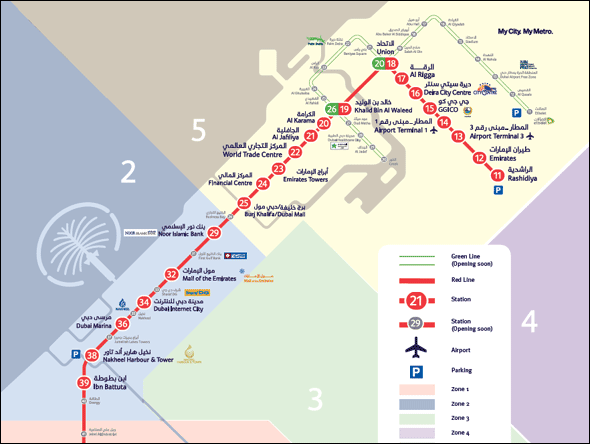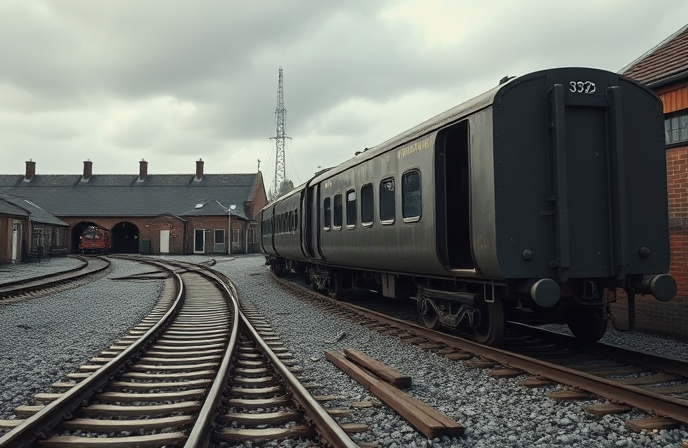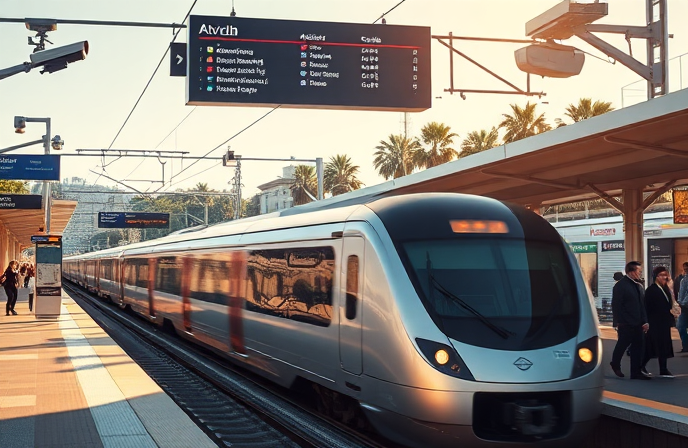Dubai’s Metro an Inspiration for GCC

The success of Dubai’s metro network has inspired other GCC countries to invest in public transport and has helped to change people’s attitudes toward using trains instead of relying on cars.
But planners from the Middle East and Africa attending a two-day Sustainable Urban Mobility workshop that began on Sunday said road congestion still had to be tackled.
“The success of this metro will lead to other success stories in the region because it persuades people to leave their cars behind,” said Dr Yarob Badr, the regional adviser on transport and logistics with the United Nations Economic and Social Commission for Western Asia.
“People will not leave their cars immediately but new metros will attract commuters.”
A year after Dubai’s metro opened in 2009, authorities in Mecca were spurred into launching a light railway linking the city’s holy sites. Since then, projects in Riyadh, Doha, Kuwait and Bahrain have been launched.
Dr Badr said it would not be easy to change the way people think.
“We need to address the attitude of people about the private car,” he said. “A private car here is not viewed just as a means of transportation, but an expansion of their private life, as a symbol of success, power. We need to challenge this mentality. This is not easy overall in the world, it’s more difficult in the Mena region and much more difficult in the Gulf.”
Pushing ahead with the Roads and Transport Authority’s master transport plan, which aims to increase use of public transport and cut dependence on cars, is not without its issues.
“When we started to think about the light rail, everybody criticised us and said it would be a white elephant,” said Abdul Aziz Malik, chairman of the Higher Commission of the Middle East and North Africa and the RTA’s Centre for Transport Excellence.
“When we started Salik we faced issues with the public saying, ‘Why are you hitting our pockets?’ So you need to be aggressive, you need to be ready for change.”
Extending the metro’s Red Line for Expo 2020, car and bike sharing options at stations, a study to look at extending the Green Line to Academic City, hybrid taxis and driverless vehicles are among initiatives proposed by the RTA.
However, experts said public transport is most effective when it reaches the commuter’s doorstep.
“Making sure this high-quality metro system caters to users’ needs will be the challenge,” said Dario Hidalgo, project director for global urban mobility institute, Embarq.
“For many commuters how they get to the metro is something that needs to be solved, it’s called the last mile connectivity issue.”
Shared responsibility was vital, said Mohammed Ben Sulayem, president of the Automobile and Touring Club of the UAE that hosted the workshop.
“If you look at Sheikh Zayed Road congestion, it’s a nightmare, and truly the government is trying but it is everybody’s responsibility,” Mr Sulayem said.
“We must take advantage of sharing cars and plan better. This workshop gives a hint of how to plan because everybody needs knowledge exchange.”
Source : thenational.ae







